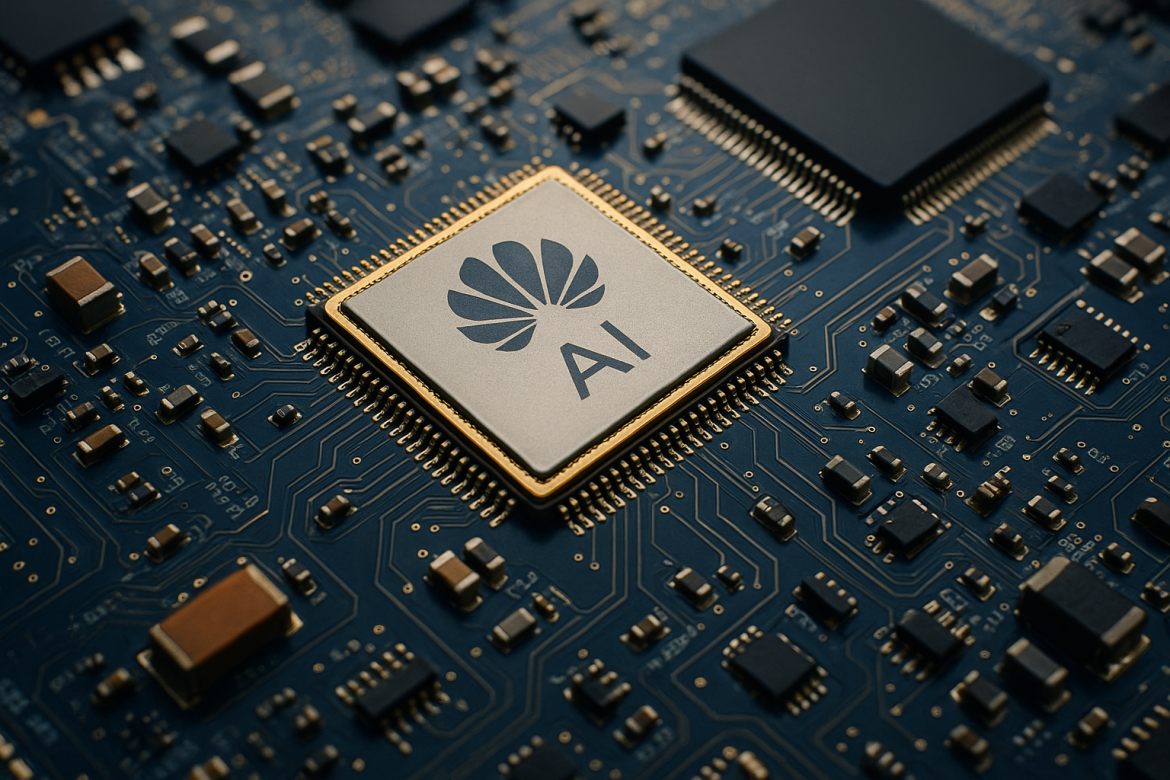Huawei Technologies Co.’s Ascend 910C processors, considered China’s most competitive alternative to Nvidia’s AI hardware, contain advanced components from major Asian chipmakers, according to recent teardowns.
The findings reveal how foreign technology remains essential to Huawei’s AI ambitions, even as Beijing aims to build a self-reliant semiconductor industry.
Researchers uncovered parts from Taiwan Semiconductor Manufacturing Co. (TSMC), Samsung Electronics Co., and SK Hynix Inc. inside the chips, underlining the scale of dependence on hardware stockpiled before US restrictions took effect.
Foreign-made components inside Huawei’s 910C
Experts examined multiple samples of Huawei’s third-generation Ascend 910C accelerators and found that the dies were manufactured by TSMC.
Alongside these, older-generation HBM2E high-bandwidth memory produced by Samsung and SK Hynix was also present in the chips.
These discoveries suggest Huawei had access to critical parts that should have been restricted under US-led export controls.
TSMC was found to have supplied millions of dies indirectly to Huawei via a company called Sophgo.
According to SemiAnalysis, Sophgo resold around 2.9 million dies to Huawei before TSMC terminated the relationship and informed US authorities.
This stockpile is expected to sustain Huawei’s Ascend 910C output through the current year, despite restrictions on further supplies.
US sanctions limit access to AI hardware
Huawei has been at the centre of US sanctions since President Donald Trump added the company to Washington’s Entity List in 2019.
The move restricted its access to advanced chips, equipment, and design tools needed for cutting-edge processors.
The Biden administration expanded those rules in 2024, adding high-bandwidth memory and advanced AI chips to the list of controlled items.
These measures target not just Huawei but also other Chinese firms working on advanced semiconductors, with the intention of slowing China’s progress in competing with US companies such as Nvidia.
HBM, essential for powering large-scale AI systems, is among the technologies restricted. Micron, Samsung, and SK Hynix dominate the production of HBM globally, making China reliant on foreign suppliers for this critical component.
Stockpiling strategy to keep production running
Industry analysts suggest Huawei anticipated tightening sanctions and built reserves of foreign components.
SemiAnalysis reported that Huawei’s access to Samsung and SK Hynix memory came through stockpiles accumulated before restrictions were imposed.
The memory, introduced years earlier, was key to assembling the Ascend 910C processors now in shipment.
SK Hynix said it ceased all transactions with Huawei in 2020 and continues to comply with US regulations. Samsung also confirmed it no longer maintains business ties with entities listed under export controls.
Despite these restrictions, Huawei’s prior procurement allowed it to mass-produce its flagship AI chip earlier this year, helping China reduce reliance on Nvidia processors.
Future challenges for China’s AI chip industry
While Huawei continues shipping Ascend 910C units using reserved parts, long-term challenges remain.
Local manufacturers such as Changxin Memory Technologies (CXMT) are attempting to develop alternatives to foreign HBM, but production remains limited.
SemiAnalysis highlighted that Huawei’s dependence on foreign technology could create bottlenecks by the end of the year once reserves are depleted.
For now, Huawei’s progress reflects both China’s determination to strengthen domestic AI hardware and the continuing difficulty of reducing reliance on established global suppliers.
The reliance on foreign parts underscores the tension between US restrictions and China’s industrial policy, with the global semiconductor industry caught between these competing pressures.
The post Huawei’s AI chips rely on foreign parts despite China’s push for self-sufficiency appeared first on Invezz

